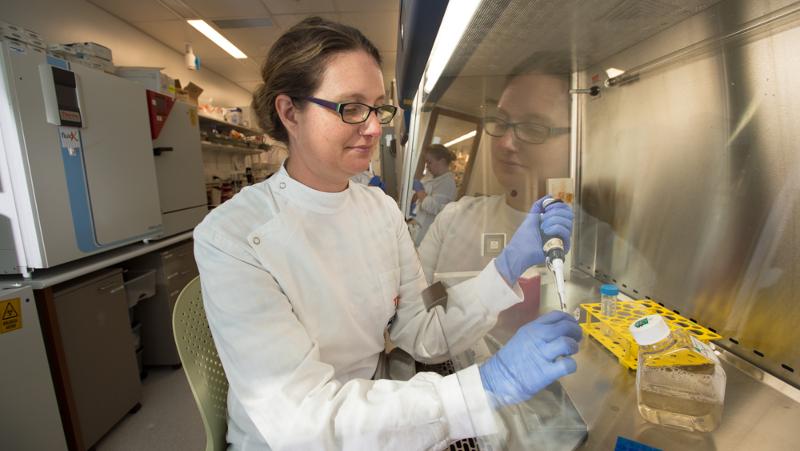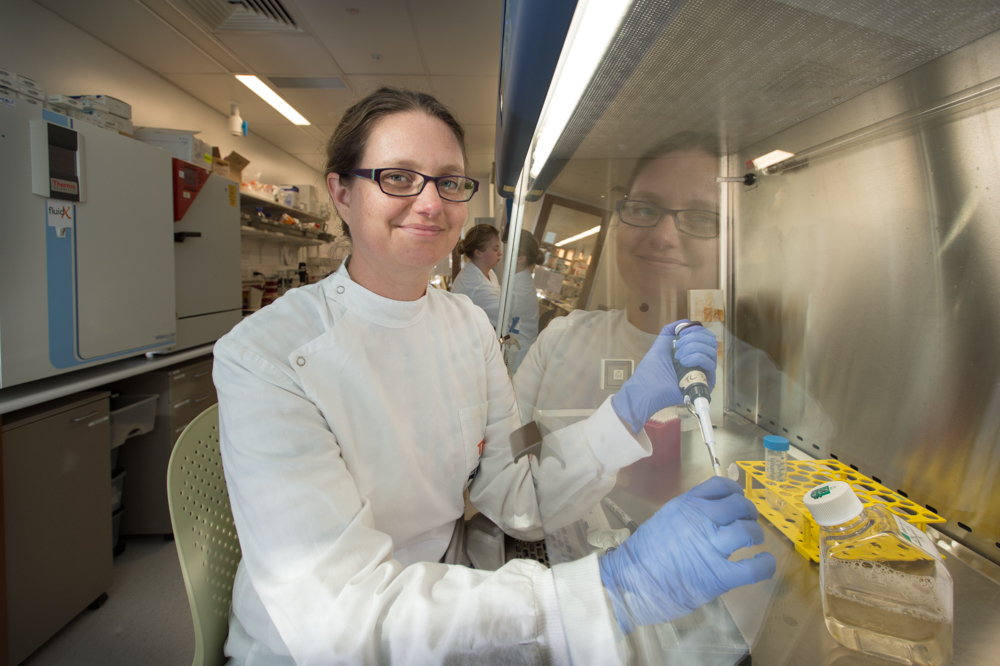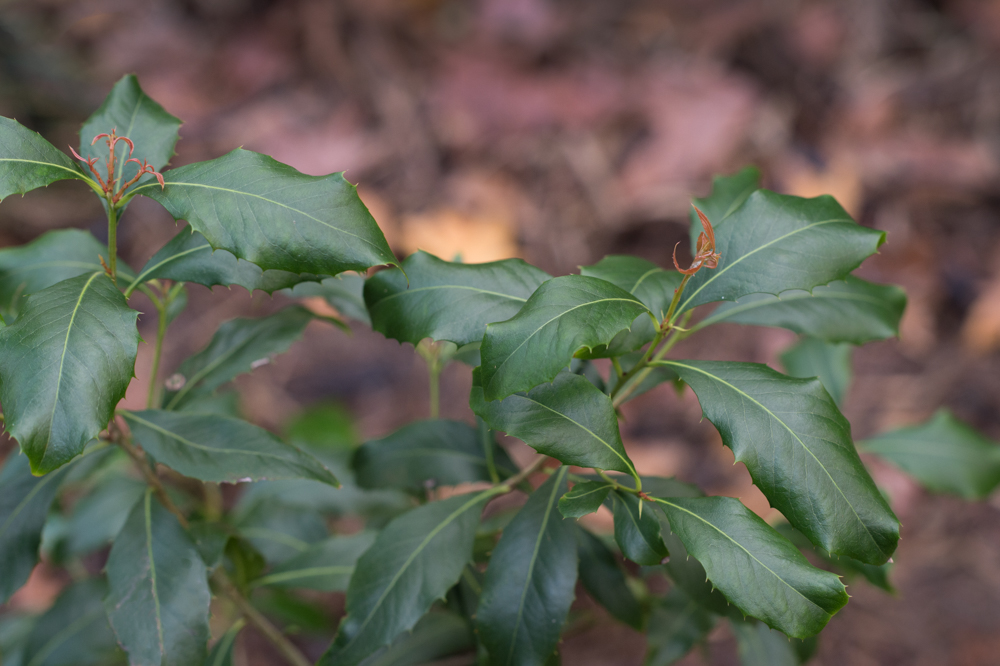
Compounds from a sea squirt and a rainforest tree, both native to Queensland, could hold the key to providing more effective treatment for prostate cancer patients.
QUT researcher Dr Jennifer Gunter and her colleagues intend to develop new drugs to starve cancer cells of the energy they need to grow.
Dr Gunter said the compounds, which were sourced from a Natural Product Compound Library through a collaboration with Associate Prof Rohan Davis from the Griffith Institute of Drug Discovery at Griffith University, had shown promising results so far in laboratory tests.
“In our lab tests we’ve found that the compounds effectively starved the cancer cells of nutrients, especially when combined with current therapies, but we need to see if these compounds will starve tumours in the body,” Dr Gunter said.
“Currently advanced prostate cancer patients are treated with Androgen Deprivation Therapy, which  deprives the cancer cells of the testosterone they need to grow.
deprives the cancer cells of the testosterone they need to grow.
“This works well to shrink prostate tumours, however, in this new environment, the cancer cells work hard to find other means to survive by using new mechanisms to fuel their energy needs.”
Dr Gunter said these new drugs would be based on natural chemicals found in several native Queensland species and would be optimised for their anti-cancer activity in pre-clinical models.
“We hope to take this research to phase one clinical trials, in conjunction with the Translational Research Institute’s Clinical Trials Centre, to evaluate the most efficacious compounds from our studies in advanced prostate cancer patients. If successful, it is likely that these drugs could also be used in other cancer types,” she said.
The compounds have been identified from a sea squirt which is found at various locations on the Great Barrier Reef while the rainforest tree grows in sub-tropical and tropical locations throughout Queensland. 
Dr Gunter said while the new drugs may not provide a cure for prostate cancer, it was hoped they would make current treatments effective for longer.
“Ultimately, we want to be able to synthesise these compounds in the laboratory and translate them into effective and commercially valuable therapeutics for cancer patients.”
A $300,000 Advance Queensland Research Fellowship is enabling the research and this funding has been matched by QUT and the Australian Prostate Cancer Research Centre- Queensland.
The project brings together local expertise in cancer biology, natural products, medicinal chemistry and clinical trials in an effort to accelerate commercialisation.
Dr Gunter said it was truly wonderful for Queensland to have the rich biodiversity to identify new compounds from native flora and fauna and for academics, such as herself, to be able to be involved in projects that could benefit both patients and the Queensland economy.
Media contact: Rose Trapnell, QUT Media team leader, 07 3138 2361 or 0407 585 901, rose.trapnell@qut.edu.au or media@qut.edu.au.


